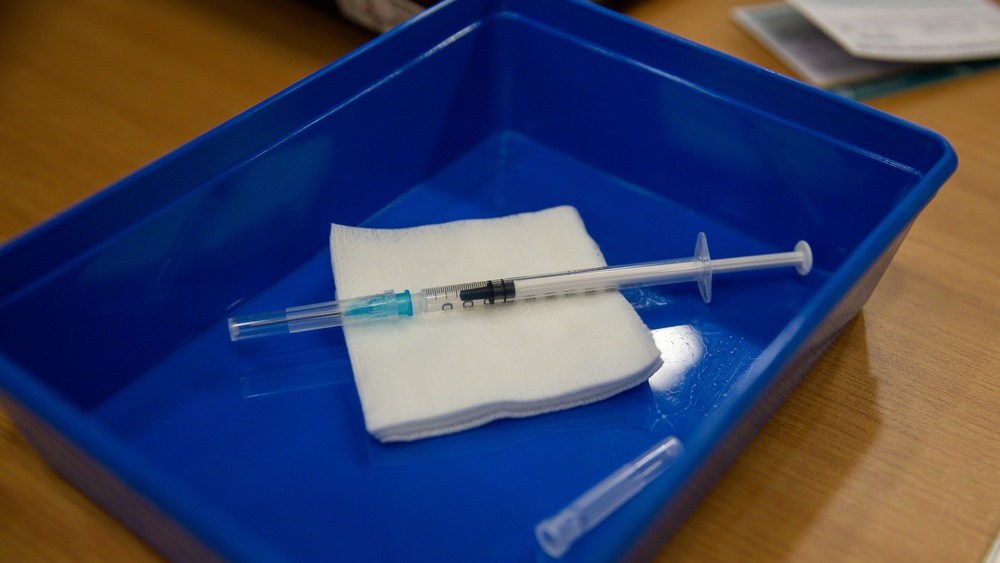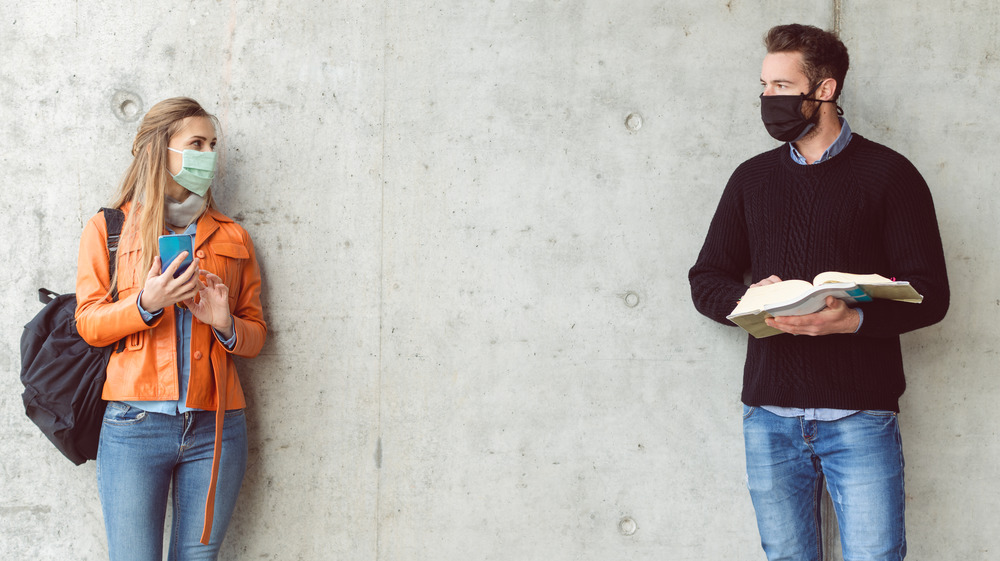Nurse Contracts COVID-19 After Vaccine: What You Need To Know
Last week, Matthew W., an emergency room nurse in California, tested positive for COVID-19 (via ABC). With California becoming the new epicenter of the U.S. COVID-19 pandemic (via The New York Times), you might be wondering, "Okay, where's the breaking news?" The interesting point here is that Matthew received his first dose of the Pfizer/BioNTech COVID-19 vaccine nearly a week before his diagnosis.
This development emphasizes the calls for continued mask-wearing, social distancing, and proper handwashing techniques, made by public health officials, even after COVID-19 vaccination.
Matthew W. received his vaccine on December 18th. The Pfizer/BioNTech COVID-19 vaccine consists of two doses administered 21 days apart (via CDC). Commonly experienced side effects include arm soreness, fatigue, headache, or chills. The California nurse reported some mild soreness in his arm the day following his injection but no subsequent side effects. Six days after vaccination, however, on Christmas Eve, he began experiencing chills, fatigue, and myalgias (muscle pain). He was tested for COVID-19 the day after Christmas and the results came back as positive.
Before this sends you into a panic, keep in mind that the news of a positive case following vaccination is not alarming — nor unexpected — to researchers.
Experts maintain this is not an unexpected occurance
The Pfizer/BioNTech vaccine offers cumulative protection against COVID-19 (via The BMJ). It's incredibly important to understand that the 95 percent efficacy rate we see all over the media occurs only after seven or more days have passed following the administration of the second dose. In clinical trials, the vaccine efficacy between the two doses was 52 percent, with 39 people developing COVID in the vaccine group, and 82 people developing COVID in the placebo group. Following the second dose, only eight cases of COVID were reported in the vaccine group, while 162 were reported in the placebo group. Clearly, the vaccine is efficacious, but only after it has been administered as directed.
Dr. Christian Ramers, an infectious disease specialist, told ABC News, "We know from the vaccine clinical trials that it's going to take about 10 to 14 days for you to start to develop protection from the vaccine." In the case of Matthew W., there are two possible scenarios. The first could be that he was COVID-free at the time of vaccination, but his body did not have enough time to start building up adequate immunity. The second scenario could be that although asymptomatic at the time of vaccination, Matthew could've already been infected, since we know COVID-19 has an incubation period of up to 14 days.
Regardless of which scenario is correct (the answer we'll never know), it serves as a strong reminder that we can not abandon life-saving protective measures just because vaccines have arrived. Still unavailable to the general U.S. population, it is important, now more than ever, regardless of immunization status, that we continue to wear masks, social distance, and practice proper hand hygiene.


